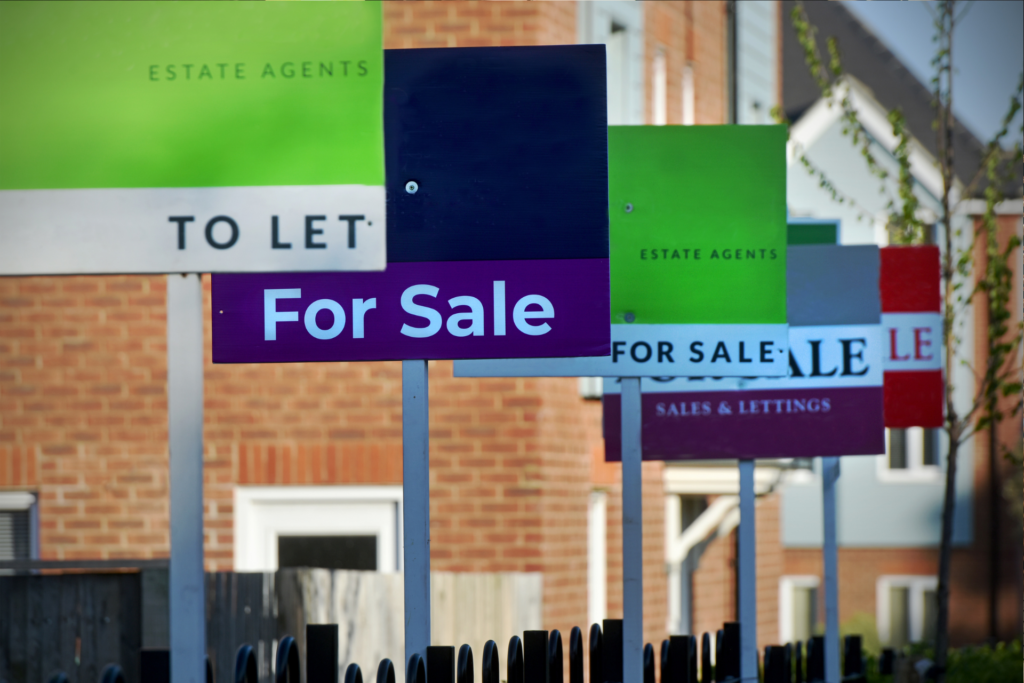What is happening with house prices in 2023?

As we hit the halfway point in 2023, it seems a prudent time to assess the current state of the UK housing market, and what could be in store for the remainder of 2023 after a turbulent few years (to say the least!).
From the onset of the pandemic in 2020 we saw an unprecedented house price rise of over 25% to 2022 thanks to renewed demand from homebuyers in contrast to a limited supply of housing stock and financial incentives for buyers such as the temporary stamp duty exemption and very favourable interest rates.
Fast forward to the first half of 2022 though, and both house price growth and the number of mortgage approvals began to slow thanks to rising inflation in the wake of the energy crisis and the invasion of Ukraine. Despite a slight increase in house price growth in July 2022 and an almost £50,000 increase in house prices between August 2020 and August 2022, the disastrous mini budget from former Prime Minister Liz Truss and then Chancellor Kwasi Kwarteng in September 2022 saw interest and mortgage rates soar and house price growth drop dramatically to 2.8% by December 2022.
By February 2023, we saw the first decline in average annual house prices since the wake of the first covid lockdown period in June 2020 and by the end of the first quarter of 2023 house prices saw their largest annual decline since July 2009 when we were in the aftermath of the financial crisis. Most recently, the Nationwide House Price Index has reported a 0.1% month-on-month fall in house prices in May 2023 with expectations that the base rate (which is currently at 4.5%) will increase to a higher than anticipated 5.5% and take longer than expected to decrease, having a knock on impact on mortgage rates for current and prospective homeowners.
What can we expect going forward?
Whilst predictions may differ in terms of the amount by which house prices will drop, with variations generally between 3-12% according to the likes of CBRE, Zoopla, Lloyd’s Bank and Capital Economics, the property industry as a whole is certainly in agreement that 2023 is the year that we will see the impact of the cost of living crisis and increased mortgage rates reflected in property prices.
Following a shaky end to 2022 and a cautious start to 2023, both consumer confidence and affordability will continue to have an impact on the housing market this year. With over 300,000 homeowners due to remortgage at the end of a favourable fixed mortgage term this summer, and the average rental fee at £1,213 (a 10% increase in the last year) for those already struggling to get on the housing ladder, something needs to budge when it comes to affordability and it would seem that house prices are the likely candidate.
There is light at the end of tunnel though. Inflation is expected to drop to around 2.9% by the end of 2023 (much nearer the Bank of England’s preferred 2% figure) and the Office for Budget Responsibility has predicted cautious growth in the UK’s GDP of 1.3% in 2024 and 2.6% in 2025. Despite a forecast drop of 10% in house prices this year, estate agents Savills have also suggested that we are likely to see 1% growth in 2024 and 3.5% in 2025, with a 6.5% increase overall forecast over the next 5 years assuming that we see a gradual reduction in the base rate from mid-2024 and a marked improvement in mortgage affordability.
Given the huge increase in house prices over the last 3 years as well – which accounts for nearly 30% of the 60% growth seen in the last 10 years – even if the 10% decrease in 2023 comes to fruition, house prices will still remain higher than they were in 2019 as the property market braces itself for more of a reset than a crash and would-be buyers can be reassured that the likelihood of negative equity is low given the more stringent mortgage affordability checks introduced after the fallout of the 2008 financial crash.
The continued shortage of available housing in the UK means there is still a demand from homebuyers, sellers will just need to accept that the inflated asking prices of 2020-2022 are a thing of the past and value their homes accordingly, as cautious buyers are more aware of riding out the impact of higher mortgage rates and the continued squeeze on their income which looks set to continue for a while yet.





